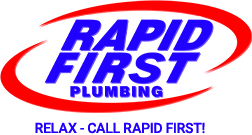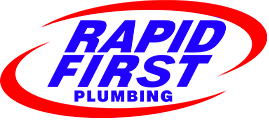Some types of greywater are relatively easy to reuse. For example, you can reuse your pasta water on houseplants with no filtration (as soon as it’s cool). But the more contaminated the water is, the more it’ll take to make it safe to use even if you’re just planning to water your lawn.
Here are some considerations to help you plan your washing machine greywater reclamation system.
1. Local Regulations
Some areas of the country are more on board with letting people reuse water than others. For example, California has regulations allowing different types of greywater systems. But some other areas that haven’t had water shortages may not be in as much of a hurry to facilitate water conservation and reuse.
Check what the regulations and requirements are for your state and your local area before you start planning. You may need to get permits, or you may only be allowed to use certain types of greywater or only use it for certain purposes. Learning about regulations in your area will inform how you design the system and help clarify what you can expect to gain from it.
2. Detergent Ingredients
If you to use your greywater on your lawn or landscaping plants, laundry detergent could kill the plants off without proper cleaning. Some detergents have substances that are harmful to the environment; the ones that are likely to kill plants are things like salt and boron or bleach.
Other guidelines include:
- Avoid anything enzymatic or anything with whiteners or softeners
- Avoid anything with ingredients containing chlorine (it’s similar to bleach), sodium (basically salt), or borax (it’s similar to boron)
- Avoid petroleum-related ingredients such as petroleum distillate or alkylbenzene
Most detergents have at least some of these components, but if you can avoid all of them you have a better chance of keeping your plants healthy and not polluting your soil.
3. Filtration and Biohazards
The detergent isn’t the only thing that’s going to be in your used wash water. Anything that got washed off of your clothes will be in that water as well. So if your job involves working with hazardous substances, you may not want to use that water on your lawn. And regulations may not permit water contaminated with substances such as sewage or hazardous chemicals.
Some types of contaminants can be filtered out. You can buy several different types of filtration systems to hook into your greywater system. But you can also set up your system with a switchover so that you can choose whether the water from a specific load will go to the sewer or to the greywater system.
4. Washing Machine Efficiency
Reusing your wash water can help save clean water that you would otherwise have used to water your lawn. So it may not seem essential to minimize the amount of water your machine uses. But what if you have a large family and a small lawn? Or what if it’s wintertime and the lawn’s getting plenty of water already?
Don’t let water recycling lull you into complacency. Any excess greywater you don’t have a use for is still going to waste. So making your washing machine more efficient in the first place can make your system even more eco-friendly. Look for a WaterSense model, and if you can find one that’s Energy Star certified you’ll be saving electricity with each load as well.
These four considerations can help you make the most of your system, maximize its water and energy efficiency, and ensure it’s up to code so you can keep using it legally and safely.
If you need help with plumbing-related tasks such as installing a new washing machine or creating a greywater system, get in touch with Rapid First Plumbing today to learn about the plumbing services we offer.


